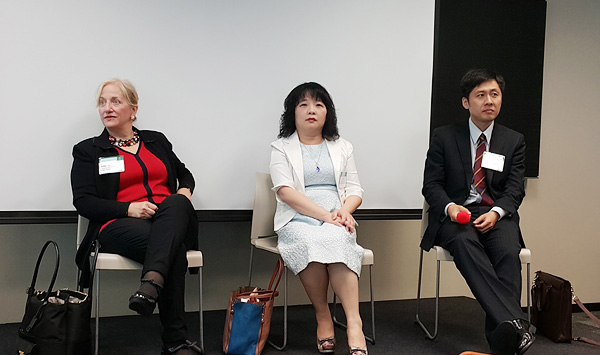
(From left: Judge Hochberg, Judge Hsiung and Judge Han; Photo credit: Anita Li)
Two former judges from the US and China and a sitting judge from Taiwan came together for a panel discussion at a forum in Taipei last month to discuss multijurisdictional litigation, cross-border enforcement between the three territories and claim construction. At the event, hosted by law firm Orrick, the judges discussed IP litigation from the perspective of their respective courts and took questions from the floor.
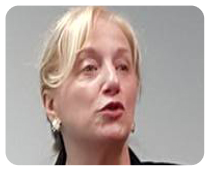 |
Retired US District Court Judge Faith Hochberg:
- 1975 Juris Doctor degree, Harvard Law School
- 1983-1987 Assistant United States Attorney, New Jersey
- 1990-1994 Department of Treasury
- 1994-1999 United States Attorney, New Jersey
- 1999-2015 US District Court Judge
- 2015-present Private practice
|
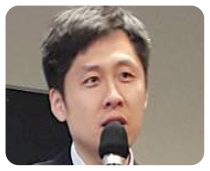 |
Former Beijing Second Intermediate Court IP Judge Han Yufeng:
- 2002 Passed the National Judicial Exam
- 2005 Master of Laws, University of International Business and Economics
- 2006 Qualified as a judge
- 2010 Qualified as a patent agent
- 2005-2014 Various positions within the Beijing Second Intermediate Court including Chief Judge of the Patent Collegiate Bench
- 2014-present Private practice
|
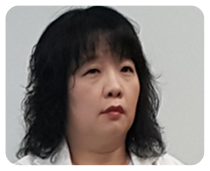 |
Taiwan Intellectual Property Court Judge Hsiung Sung-mei:
- Master of Laws, National Taiwan University
- Masters of Laws and Juris Doctor Degree , UC Berkeley School of Law
- 15 years as a judge at the Taiwan Taipei District Court
- Currently a high court judge at the Taiwan Intellectual Property Court
- Board editor, Monthly Law Journal
- Adjunct associate professor of intellectual property law, National Tsing Hua University
|
The judges were first asked about the practice of litigants filing lawsuits in the US, taking advantage of the rules around discovery there, for the sole purpose of getting access to evidence for a trial in Taiwan or China:
Judge Hochberg: So, I guess my answer to that would be that if a US judge knew that you were only there to get discovery to use in another country they probably wouldn’t be so hospitable to your discovery requests. In general, I think, in our country there is a gradual awareness by judges that discovery has gotten too cumbersome and too broad and too expensive. So while we still have a tradition of a lot of discovery, I think there is an effort now to cut it back to that amount which is really necessary and proportional to the case and not to use it for what would be called a fishing expedition to get the kind of evidence just to use in another court where you don’t have the right of discovery. I don’t think a constitutional court in the United States would want to simply be in aid of discovery that wouldn’t otherwise be enjoyed or permissible in another country. We have now similar issues going on now in our own court system, because we’ve recently created, just very recently, this brand new administrative court, that hears only these patent validity issues, and it gives very, very, very narrow, limited discovery. And sometimes litigants try to come to the constitutional court thinking that they’re going to get broader discovery which they can then use in the administrative court. And I think, I’ve spoken widely on this, I don’t think that judges want to be used like that. In other words, if it is legitimate for the dispute in front of them, fine, but if they catch wind of the idea that you’re just taking up their time in their courtroom to get evidence that you wouldn’t be entitled to somewhere else, you probably wouldn’t get the happiest reception.
Judge Han [1]: In Mainland China they traditionally emphasize that the burden of proof lies with the complainant, so it is not as exhaustive as the US discovery process. This means there is a heavier burden of proof for the complainant... At times when there are cases in three different jurisdictions, it's very easy to go through the notarization process to use evidence obtained in the US - if it is written evidence – in China. With material evidence, however, the authentication process is a little harder to go through - as embassies don't provide this service. In discussion about this issue, we came up with a new idea, which I welcome everyone to try. Take the material evidence, in its most original form and seal it and then send it to China. You would need to document every procedure it goes through before entering US Customs; then you need to ensure that from the moment it leaves Chinese Customs it is supervised by a notary public there. If this is done correctly the evidence is unlikely to get tainted, correct? If the evidence isn't tainted, then theoretically it's highly likely that it can be admitted as evidence.
In the new [Supreme Court Patent] judicial interpretation, they've introduced something similar to discovery... it transfers the burden of proof. You could call it reversing the burden of proof. The complainant only needs to produce initial evidence of losses, then the burden of proof is transferred to the defendant, and they have to hand over their financial accounts, which can serve as proof of their gains from infringement. If they don't hand their accounts over, or if they have been doctored, then the court will likely uphold the complainant's demands. This is extremely good news.
This conversation expanded into a broader discussion of cases being tried in more than one jurisdiction:
Judge Hsiung [2]: I think IP litigation is very international… for example, I just wrote a decision last night, on a case involving trade secrets in Taiwan, a civil case in Taiwan which is also a criminal case in Taiwan. The two parties have similar litigation, one at the ITC [International Trade Commission], one in federal court for patent litigation and one in state court for trade secrets. In IP litigation, we deal with these kinds of multijurisdictional cases very often. In recent years I have also dealt with many cases in between Taiwan and China, one of the parties [mentioned above] is Chinese… a Chinese individual, not a corporation. When I deal with these kinds of cases I feel some pressure and a burden, because I know that other judges, no matter what language they speak, will see my decision at some point. So although I work hard on each case, I will work harder on these cases, especially cases that are common between Taiwan and China, because it’s very easy for Chinese judges to read Taiwanese decisions. So if I have a case, and the parties tell me they have a similar case in China, I will work harder on that case. And it happens. Two or three years ago, after a conference in Beijing someone approached me to say, “Judge Hsiung, you know, just last month I advanced a decision you made in Taiwan to the Nanjing District Court. And we told the judge of the Nanjing District Court, ‘Look, Judge Hsiung from Taiwan has already made this decision. What’s your opinion?’ And he told me that the judge in the Nanjing court made the same decision. This is a kind of international competition and cooperation between Taiwan and China.
Judge Han: When three jurisdictions are dealing with the same issue, there are generally two kinds of situation: the first is when the problem being dealt with is completely identical in the way it is being addressed, where ne bis in idem (a legal doctrine to the effect that no legal action can be instituted twice for the same cause of action) might be relevant. There will be a tacit understanding by each of the judicial organs that there should not be several contradictory or different judgments. This is enshrined in the regulations of China's Civil Procedure Law. So, if there are other courts which are more appropriate to judge a case, they will rule to reject the lawsuit, that's one situation; The other situation is when it's a similar category of issue. Of course I'm aware that everyone thinks that courts are not efficient enough, no? No-one is going to think "Oh! The court was actually quicker than I wanted!", but in this kind of case, if the different parties know that this is the case, they'll be eager to be the first to make judgment, they all hope to serve as precedents for others. As there is an ingrained idea that different judicial organs have to respect each other.
Just like Judge Hsiung said, after Mainland Chinese judges get hold of a judgment made by her, they'll likely look and say "Oh, yes, that's correct! So why wouldn't our understanding be in line with that?" Everyone appreciates each other in terms of professionalism. We are also hopeful that our judgments will be referenced and studied by our peers in other countries and to engage in exchange in the future, yes?
Judge Hochberg: So usually that’s governed by treaties between the countries, but there is certainly a long tradition within the United States of recognizing, by a matter of international diplomacy, the need to be willing to enforce final judgments of other countries, and that’s a general principle. I can’t say that it always applies. A lot of times it will depend on whether there is a reciprocal law in the other country, so that they agree to enforce United States’ judgments as well. Certainly we have a tradition, because we have fifty states, they all have… When there is an international law, we would ask for a briefing on it to be sure that it was a final judgment, not subject to any further appeals, and we would treat the questions of foreign law as an issue of fact for expert witnesses in our case. So we would have a hearing and expert witnesses testify on what the prior court in another country actually ruled and what the impact of it would be, in that country, as well as any appeals or other… resort to other laws about that decision. And once we had gathered all the facts about what had happened in another country, then we would make a determination about how enforceable that was. But we always are looking at, especially in this area of the law… foreign patents regularly come into evidence as prior art, even foreign applications, whether it was applications in another country or something with the World Intellectual Property Organization, those are regularly submitted into evidence in my courtroom on issues of obviousness and anticipation, so we are very accustomed to dealing with the fact that this area of the law is very international in scope.
Judge Han: As to the issue of enforcing judgments, I would say the following: There is no international treaty between China and the US to this effect... Mainland China and Taiwan, on the other hand [...] have approved the mutual enforcement of judgments, but not having a treaty doesn't make it impossible. That is to say, that China has also seen its judgments enforced in the US. Of course, this kind of demand, for a judge, means that you basically have to use US standards and procedure to carry out the judgment. [...] In the cases we preside over, we also [adopt] the judgments of other countries. We don't just take up the judgment and enforce it, but rather we take the facts determined in other judgments and apply them to the case. This kind of case does occur. [...] I think that, particularly in the intellectual property field, which is such an international one, there will be more of a convergence, in terms of mutual recognition of judgments, or just mutual recognition, and it may be quicker than other fields of the law.
Judge Hsiung: Taiwan is a very friendly jurisdiction and Taiwanese people are very, very kind. I think that’s judicial comity, we respect judicial comity, so if you are a member of the WTO we will enforce any decision made by a WTO member. Because we don’t have a discovery system, which the US does, we even help US companies to conduct discovery. I once had a case, it was an assistance case. We assist US companies who ask us questions, like a deposition. We will send a notice to that company and ask them to come and they will give us a list of the questions and we will answer them and record everything and then send this to the American Institute in Taiwan (AIT) or embassy and they will translate. […] Judicial cooperation and it’s free. We charge nothing. Between Taiwan and China it’s actually friendlier, even despite the politics, in court decisions we are very friendly. We can enforce a decision made in China.
Judge Han: In China, it is not free, but your opponent has to pay, which should make you happier than it being free.
The judges were then asked about the line between infringement and validity proceedings in each of their jurisdictions.
Judge Han: Currently in Mainland China the system for patent infringement and that for patent validity run separately. Validity proceedings are dealt with by the State Intellectual Property Office's Patent Reexamination Board (PRB) [...] They run in parallel. In terms of administrative invalidation proceedings - they can't directly declare a patent invalid, they can only re-examine the patent and allow the PRB make another ruling on validity, but this is changing. [...] Now the courts can give a… what’s called a "guidance" judgment, which tells the PRB, if you don't make this judgment, and it comes to appeal, it will come back to you. In civil proceedings, the judge has no authority to declare a patent invalid. However, for cases in which there is a lot of prior art, the Chinese civil judiciary and the judges of the IP court invented a new system. It's called a prior art plea. The prior art plea essentially avoids the patent validity issue... avoids the conflict of authority. But in practice it allows for a new standard on the judgment of patent validity. You just don't state that, even if you beat me to death I won't say if it is valid or invalid.
However, in individual cases... it is equivalent to denying the patent rights, in that the defendant's technology is prior art, so [the technology in dispute] does not enjoy patent rights, and everyone knows that this judgment will be made public. So if this case is not upheld and the complainant tries to sue you again... Following the establishment of the IP courts, I predict, especially in Beijing, there will be a breakthrough in this regard. Why? Because they are in one court, they are in charge of infringement cases and at the same time of validity cases. It's very likely that while they're dealing with an infringement case, they have also been assigned the corresponding validity case. So given that I'm already very familiar with infringement issues and also with validity issues, there's not likely to be much of a discrepancy or contradictions in my standards. I think that a breakthrough in this respect is likely to occur. I think that the two parallel lines will finally intersect. The Supreme People's Court is pushing for the establishment of an IP High Court and if it is established, then this means that infringement and validity issues, in the end will intersect at the IP High Court. It will reexamine and make a final ruling. This will change the two pronged system currently in action.
Judge Hochberg: In our constitutional court system, the federal courts, where I was a judge, we would hear both issues of validity as well as issues of infringement. The most typical way that a case comes in to court, is that the plaintiff makes an allegation of infringement and the defendant responds denying infringement and then raising a counter-claim of invalidity. But it can come in in other ways, if, for example, there is a request for a declaratory judgment on invalidity that precedes. However… and that still happens and it happens all the time. But when we started this new administrative court a couple of years ago, that court only has the authority to decide questions of validity. It’s a court within the US patent office itself, although it is a rather peculiar paradox that, on one side of the building enter the patent examiners who issue patents and on the other side of the building enter the administrative law judges who basically have been invalidating the patents that have been granted on the other side of the same building. And that’s been happening to a much greater extent than in the federal court system, primarily because the congress, in a law which has burdens of proof which don’t exactly make sense right now, there’s an easier burden of proof to obtain invalidity of a patent in the patent office proceeding - the administrative proceeding - than it is in federal court. There’s no logic or rationale or justification for that, but that’s the way it is right now, until our supreme court decides to change it, if ever. So what the judges now in federal court are usually called upon to decide, is whether or not to stay or hold the infringement and invalidity case in federal court to see whether the patent office will or will not invalidate key claims. The job is made harder by the fact that the patent office gets a very limited period of time within which to do its case, so it only usually takes one or two representative claims if any, and there are usually perhaps anywhere from 10 to 120 claims in the district court case, so what the judges are typically doing is not staying or holding anything, until the patent office makes a decision about whether it will institute a proceeding to look at whether the patent is invalid, but if the patent office, in this, institutes in certain of the key claims, then some judges will, in fact, enter a stay of the federal court litigation and wait for the patent office to decide its validity challenge there. There’s a whole complex set of factors that enter in… the area has become very complex. Congress may have had a goal of making our patent litigation faster and less expensive with this new administrative court, the reality is, that by permitting proceedings to run in parallel and encouraging stays, you may think you’re done, but unless the patent office invalidates every key claim, there is something left to go back and fight in district court about, so it can actually end up being longer and more expensive, which was not the intent originally.
Judge Hsiung: Since the establishment of the Taiwan IP court, in civil cases, the judge can decide the validity issue.
The judges then proceeded to discuss claim construction
Judge Hochberg: A long time ago, and this ended maybe 15 or 16 years ago, maybe longer, claim construction was actually done in the jury system. But the Supreme Court in the United States, in approximately 1998 or 1999, came out with the decision called the Markman decision, and that’s sort of become a household word now. And what that decision said is that the meaning of claim terms is a function that the judge should decide, not a jury. So judges have what we now call Markman hearings to decide what the claim terms mean if they’re disputed. And those can be quite hotly disputed proceedings where we often, in advance of the Markman proceeding, most judges have what they call a tutorial, meaning that they invite the parties, sometimes with their experts, to come together, and in a somewhat informal context, explain to the judge what the art or technology or science is of the invention. And sometimes it’s done jointly and sometimes each side wants to submit its own tutorial. I’ve always encouraged the parties to put it on a DVD, so that if my law clerks change before the case was ended, so that the new law clerk could watch the DVD and see the same tutorial that I received from the parties. In addition it becomes part of the record, so that when the case goes up to the Court of Appeals, they could see the tutorial as well, and understand the technology or science at issue.
Judge Hsiung: In Taiwan we have a system to help judges decide claim construction - the technical examination officers. […] judges are just like students in the courtroom, so this is the same with claim construction too. The two parties can make any kind of argument or presentation they think is appropriate, but in the end the judge will decide. The claim construction is interesting, difficult and important, so I don’t feel it’s easy to express my opinion here. I would like to be a good student in the courtroom, so when you’re in the courtroom, you also have to work hard, and don’t be afraid or shy to tell the judge what you think.
Judge Han: I think the most basic requirement for a judge, whether it is in an intellectual property case or any other case, is to find out the truth and to enforce it through law. And judges are eager to do this in terms of the legal issues around claim construction, but how can they go about it? Because technology patents, are, by their very nature, technological - we'll skip design patents for the moment. It's very difficult to understand invention and utility model patents. But, as a judge, you can't approach it with the feeling that someone is making life hard for you, because in terms of what's in dispute, it's only a little bit of technology. It's not like you have to go back and get an engineering degree, it's just a little. In terms of this little bit of technology, you can allow both parties to give representations on this [...] The IP Court has instituted a system of technical examination officers. These officers give their own opinions on the technology, then, help the judge understand the issue with the technology. But they don't decide in place of the judge. There are also expert witnesses, who also help the judge to understand the truth about the technology in dispute. There is also the "Judicial Accounting Expert Report", which has been renamed "Judicial Accounting Expert Opinion". [...] Expert opinions have to be delivered to the court in person, to allow for cross-examination. In the process of the two parties questioning the expert, we are able to get to the truth. Although claim construction is a relatively simple matter and you can say it is the judge who decides it, it's really quite a complicated process.
- All comments by Judge Han are translated from the Chinese by the author and should only be cited as such.
- As Judge Hsiung was speaking in English, a second language, quotes from her have been amended slightly from the original to render them more fluently and should only be cited as such.
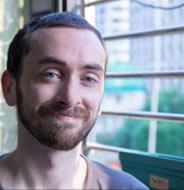 |
|
| Author: |
Conor Stuart |
| Current Post: |
Senior Editor, IP Observer |
| Education: |
MA Taiwanese Literature, National Taiwan University
BA Chinese and Spanish, Leeds University, UK |
| Experience: |
Translator/Editor, Want China Times
Editor, Erenlai Magazine |
|
|

|
| Facebook |
|
Follow the IP Observer on our FB Page |
|
|
|
|
|
|



